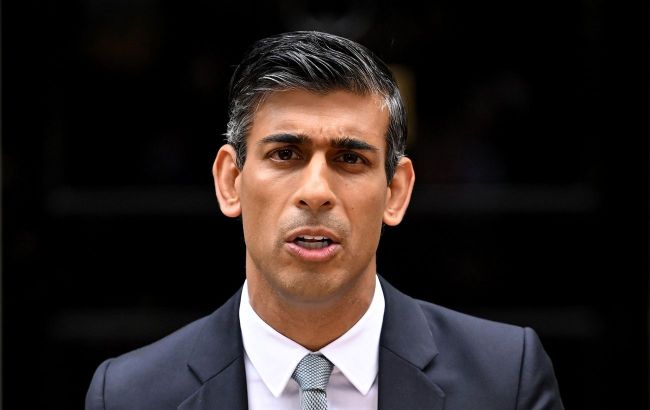UK heading for early elections: Why British PM dissolves Parliament and what this means for Ukraine
 Photo: British Prime Minister Rishi Sunak (Getty Images)
Photo: British Prime Minister Rishi Sunak (Getty Images)
After an audience with the king, British Prime Minister Rishi Sunak announced the dissolution of Parliament and the scheduling of early parliamentary elections. It was expected that the elections would take place in the autumn, but the British Prime Minister decided to hold them earlier.
Read about why there will be early elections in Britain and what it means for Ukraine in the material by RBC-Ukraine.
In the evening of May 22, after meeting with King Charles III, the British Prime Minister announced that he had received permission to dissolve Parliament and hold early elections. As Sunak reported, early parliamentary elections in Britain will take place on July 4, 2024.
On Friday, May 24, the British Parliament will conclude its current session, and on May 30, it will be officially dissolved.
After the elections, newly elected members of parliament will convene in London for the first time on Tuesday, July 9, after which they will elect the Speaker of the House of Commons and take their oath. The officially newly elected parliament is set to commence on July 17.
Why did Sunak opt for early parliamentary elections
According to the British newspaper The Guardian, it was previously assumed that parliamentary elections would take place in the autumn, as Sunak himself had plans to hold elections in the second half of this year. Furthermore, today, the Conservative Party, represented by Sunak, is lagging behind its Labour rivals by as much as 20 points.
Sunak allegedly wanted to wait for an improvement in the economic situation before holding elections, but, as the newspaper writes, citing sources in the British government, he realized that the economic situation in Britain would not improve by autumn.
Moreover, according to Politico, Sunak may be betting that the rating of the opposition Labour Party will decline during the election campaign, giving the Conservatives, who are currently in a difficult position, a chance.
As of May 13, support for the Conservative Party stood at 23%, while 44% of respondents supported the opposition Labour Party.
The decision by Sunak was met with criticism within the Conservative Party. Many Tory MPs and ministers see the Prime Minister's decision as a desire to "give up" and step down from office, according to Sky News. According to The Guardian, two ministers referred to the early elections as a mistake.
However, there are Conservatives who understand Sunak's decision. One former Conservative minister said to Sky News that the Labour Party is unraveling more than people realize, and just waiting is not a strategy.
What the elections in Britain mean for Ukraine
While today, according to polls, Labour has significantly higher levels of support among Britons, making predictions about the results of parliamentary elections is premature. However, whatever the outcome, it is unlikely to have negative consequences for Ukraine.
In contrast, for example, to the US with the so-called Trumpists, both the current ruling party and the opposition in Britain support Ukraine. In particular, this May, so-called shadow ministers from the Labour Party, David Lammy and John Healey, visited Kyiv and promised to maintain "ironclad" support for Ukraine.
"A change in government in the UK would mean no change in our military, diplomatic, financial and political support to Ukraine. The next Labour government’s commitment to Ukraine will be ironclad and European security will be our first foreign and defense priority," said Lammy.
Also, while in Kyiv, representatives of the Labour Party expressed support for Ukraine's integration into NATO, promising to create a "clear path to membership."
Sources: materials from The Guardian, Sky News, Bloomberg, and Politico.

